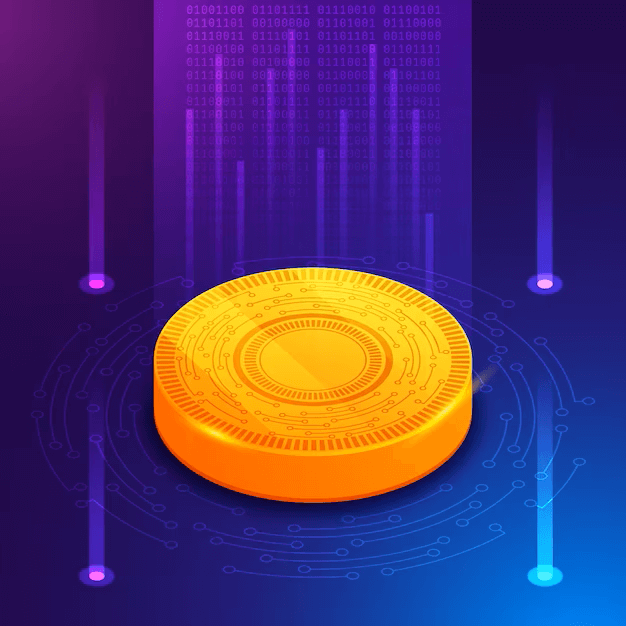Crypto Basics: Coins vs. Tokens
In the realm of cryptocurrency, the terms “coin” and “token” are often used interchangeably, yet they possess distinct characteristics and functions. While both coins and tokens operate within blockchain networks, they serve different purposes and have unique origins.
Coins, such as Bitcoin and Ethereum, function primarily as digital currencies, serving as mediums of exchange within their native blockchain ecosystems. These coins are native to their respective Layer-1 blockchains, facilitating peer-to-peer transactions and store-of-value functions.
On the other hand, tokens are created and operate atop existing blockchain platforms, often leveraging smart contracts to enable a diverse array of functionalities. Tokens can represent digital assets, rights, or ownership in a project, platform, or ecosystem, with use cases ranging from utility tokens for accessing specific services to security tokens representing ownership in a company or asset, as well as non-fungible tokens (NFTs) for unique digital assets.
Understanding the distinction between coins and tokens is essential for navigating the complex landscape of cryptocurrencies and comprehending their diverse applications and value propositions.

What is a coin?
A coin within the realm of cryptocurrency is a digital asset that operates on its own blockchain network. The most renowned exemplar of a coin is Bitcoin, with other notable examples including Litecoin, Ethereum, and Bitcoin Cash. Coins are characterized by their autonomous blockchain infrastructure, distinct from tokens which are built on existing blockchain platforms.
One of the fundamental purposes of coins is to serve as a medium of exchange, akin to traditional currencies, enabling transactions for goods and services within their respective ecosystems.
Beyond facilitating payments, coins also serve as vehicles for speculation, offering investors the opportunity to buy and sell with the anticipation of capitalizing on price fluctuations and generating profits. This dual functionality as both a means of payment and an investment vehicle underscores the versatile nature of coins within the cryptocurrency landscape.
What is a token?
A token in the context of cryptocurrency is a digital asset that operates on top of an existing blockchain infrastructure. Unlike coins, which have their own independent blockchain networks, tokens are built on established blockchain platforms. A prime illustration of a token is Ethereum’s native currency, Ether. Tokens have a broad spectrum of applications, representing anything from physical objects to virtual currencies within decentralized ecosystems.
Typically, tokens are generated through processes like Initial Coin Offerings (ICOs), analogous to Initial Public Offerings (IPOs) in traditional financial markets. ICOs serve as a means for startups to raise capital by issuing tokens that hold utility or value within their respective platforms.
Tokens can serve various purposes, such as representing ownership of assets, providing access to services or applications, or serving as a medium of exchange within decentralized networks. For instance, in the Ethereum ecosystem, tokens are utilized to facilitate transactions and interactions on the network, with Ether acting as the primary fuel for executing smart contracts and transactions.
Coins vs. Tokens
The distinction between cryptocurrency coins and tokens lies in their underlying blockchain infrastructure: coins have their own independent blockchains, whereas tokens rely on existing blockchain platforms. Here’s a simple table that provides a concise comparison between coins and tokens, highlighting their differences in blockchain infrastructure, purpose, valuation, centralization, management, and notable features:
| Aspect | Coins | Tokens |
| Blockchain | Have their own independent blockchain | Rely on existing blockchain platforms |
| Examples | Bitcoin, Litecoin, Ethereum Classic | Ethereum (ETH), Binance Coin (BNB), Chainlink (LINK) |
| Purpose | Primarily used as digital currency | Serve various purposes, including powering decentralized applications (dApps) |
| Valuation | Often viewed as stores of value, driving higher market capitalizations | Valued for utility in powering dApps, price influenced by demand for underlying blockchain functionalities |
| Management | Managed by respective communities | N/A Operate on existing blockchain platforms |
Bottom Line
Conducting thorough research before investing in any cryptocurrency is paramount to making informed decisions. One essential aspect to consider is the compatibility of the coin or token with the exchange you intend to use for trading. Different exchanges have varying listings, so verifying availability beforehand is crucial.
Additionally, delve into market analysis to understand the potential risks and rewards associated with the cryptocurrency you’re considering. Evaluate market trends, historical performance, and projected growth to make informed investment choices. Understanding the fundamentals of the project behind the coin or token is also essential.
Research the project team, goals, technology, use cases, and community engagement to gauge its long-term viability and potential. Furthermore, stay abreast of regulatory considerations and compliance requirements in your jurisdiction to mitigate regulatory risks. By prioritizing research and staying informed, you can navigate the cryptocurrency market more effectively and make sound investment decisions.
LATEST CRYPTOCURRENCY NEWS
YOU CAN WIN $200 EVERY HOUR




